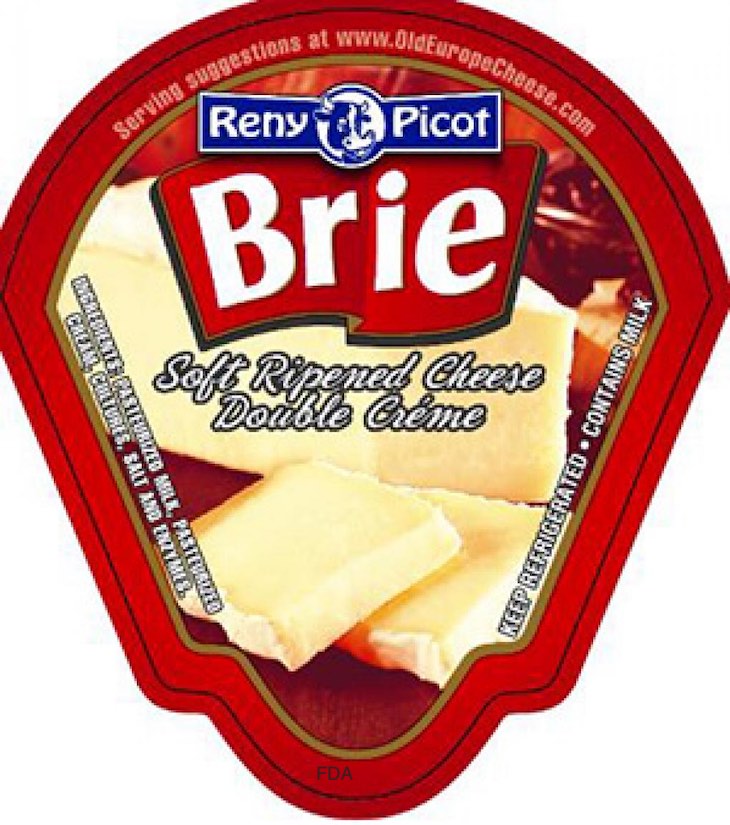The Old Europe Listeria monocytogenes soft cheese outbreak has ended with six people sick in six states, according to the Centers for Disease Control and Prevention (CDC). Five people were hospitalized because they were so ill. That outbreak investigation was last updated on November 10, 2022.

The patient case count by state is: California (1), Georgia (1), Massachusetts (1), Michigan (1), New Jersey (1), and Texas (1). The patient age range is from 56 to 83 years. Sick people’s samples were collected from August 6, 2017, to August 5, 2022. There may be more patients in this outbreak because some people contract this infection and do not see a doctor, so are not diagnosed and entered into the government database.
Patients were interviewed by government officials. Of the five patients who consented to interviews, four reported eating brie or camembert cheese before they got sick. Most people didn’t remember the brand, but one person reported eating Lidl Premium Brand Brie. Old Europe Cheese is the only manufacturer of that product.
The PulseNet system was used to find patients who were part of this outbreak. Whole genome sequencing showed that patient isolates were closely related genetically, which means they likely got sick from eating the same food. And the FDA inspected the Old Europe Cheese facility in Michigan, collecting samples. Listeria found in the cooling room of that plant was closely related to Listeria from patient isolates.
Old Europe recalled their brie and camembert cheeses on September 30, 2022. On October 4, 2022, Swiss American recalled St. Louis brand brie that was made by Old Europe. Old Europe expanded that recall on October 5, 2022 to include baked brie. The cheeses were sold under many brand names, including Reny Picot, Trader Joe, Joan of Arc, La Bonne Vie, Lidl, and others.
If you have eaten any of the recalled cheeses and have been ill with the symptoms of listeriosis, see your doctor. You may be part of this Old Europe Cheese Listeria monocytogenes outbreak.

If you have been sickened with a Listeria monocytogenes infection after eating Old Europe Brie or Camembert cheese, please contact our experienced attorneys for help with a possible lawsuit at 1-888-377-8900 or text us at 612-261-0856. Our firm represents clients in lawsuits against grocery stores, restaurants, and food processors.




